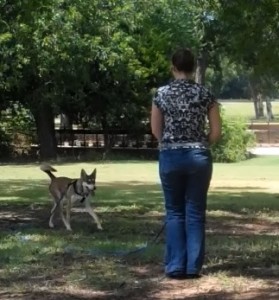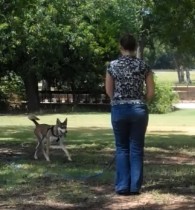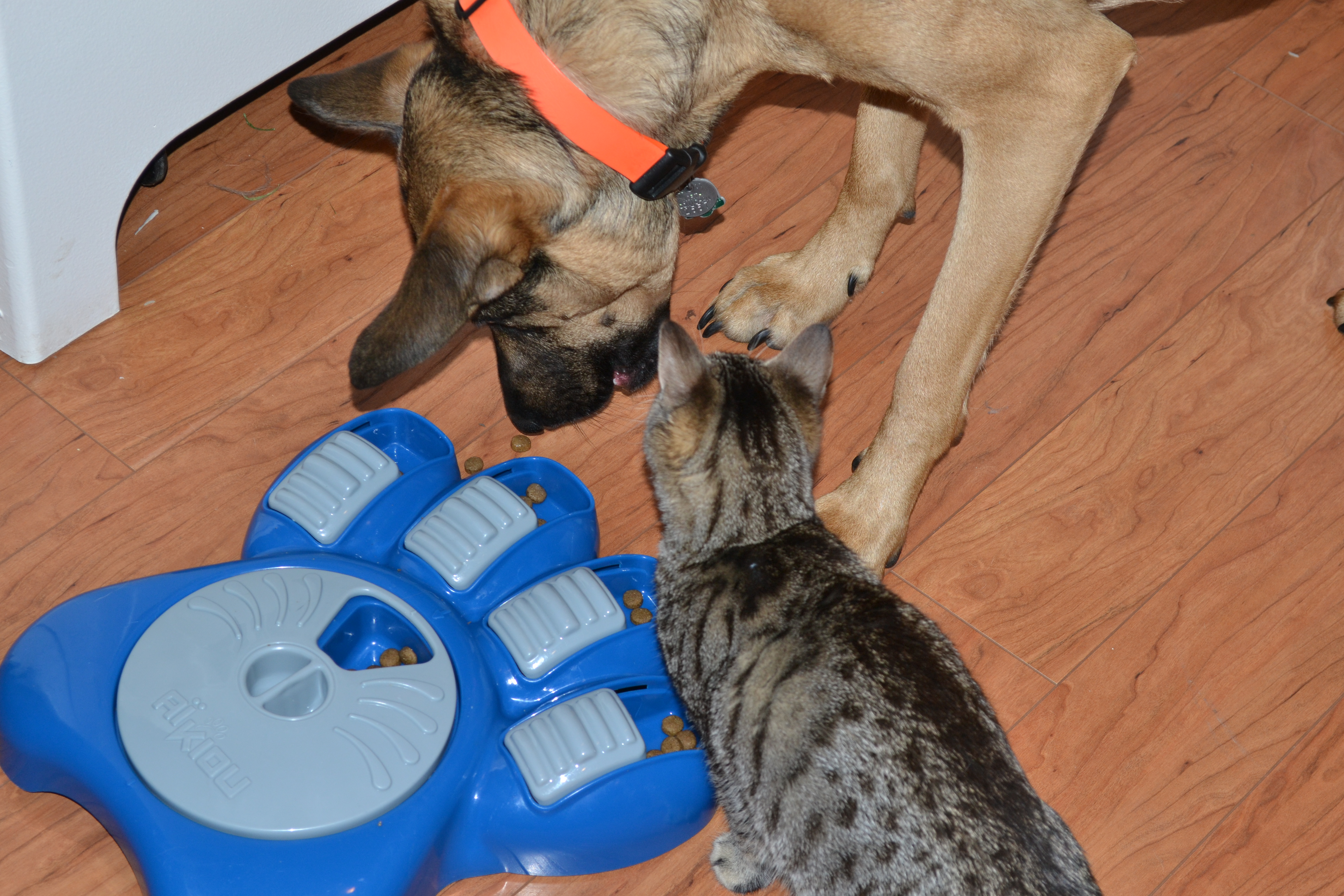 Learning when to use the clicker is pretty straight forward. You click when the dog does it right and follow up with a treat or play. One question that is rarely address though is “when do I stop using the clicker?” Presumably, you don’t want to use the clicker forever. It is simply a tool to teach the dog what you want, but once the dog knows what to do, it is time to remove the clicker.
Learning when to use the clicker is pretty straight forward. You click when the dog does it right and follow up with a treat or play. One question that is rarely address though is “when do I stop using the clicker?” Presumably, you don’t want to use the clicker forever. It is simply a tool to teach the dog what you want, but once the dog knows what to do, it is time to remove the clicker.
Lets say your dog already performs the desired behavior without errors >90% of the time or at least 10 times in one minute without your help. This is when you can add the verbal cue right before he/she performs the behavior. Your dog will associate the cue with that behavior. You can continue using the clicker after the behavior while you are still introducing the verbal cue. This will help your dog stay confident about what you are asking.
According to Melissa Alexander of ClickerSolutions, “You’ll train elements such as distance, duration, generalization to multiple locations, and proof against distractions after the behavior is on cue.” You will continue to use the clicker when working on generalizing the behavior.
Talking to your dog once he/she starts getting it is a great way to give feedback and increase the value of your verbal communication. When you remove the clicker, your dog should understand when it did something right with some verbal praise. If your dog has never heard you praise him, he wont associate your words with being correct. Fortunately, many people have no problems with this part!
The Answer
Once your dog can reliably perform the behavior on cue and in many locations, you can remove the clicker. Your dog has solidly learned the behavior at that point and the clicker becomes unnecessary since it is just a learning aid. Doug Johnson (Good Dog Behavioral Training L.L.C.) states that “the reward is still VERY important, but the clicker is a communication device to teach the dog what we want. Now that they know, we don’t need the clicker, just the reward for a good job.” You should always give your dog feedback (verbal praise, play, smile, food, etc) so that they don’t get confused or begin to question if they did something wrong.
Happy Training!




